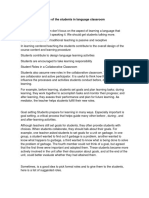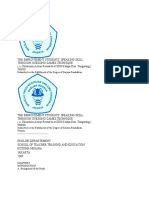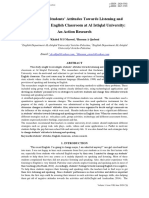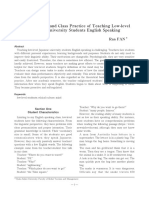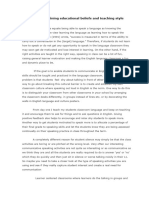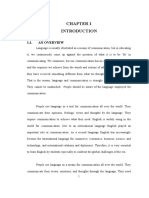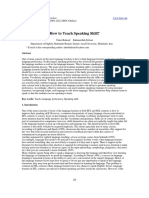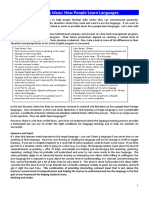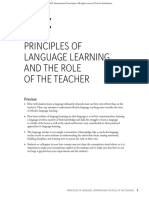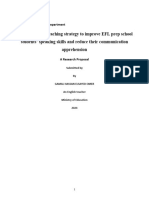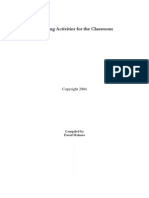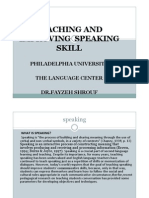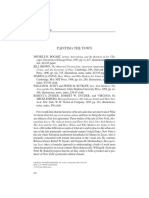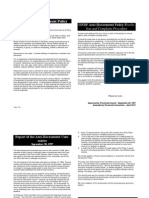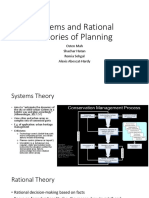0% found this document useful (0 votes)
127 views13 pagesNational Autonomous University of Nicaragua Unan-Leon Faculty of Education Science and Humanities
This document outlines a research study on factors affecting English speaking skills in 7th grade students at Villanueva High School in Nicaragua. The main objective is to identify causes affecting oral skill development. Specific objectives are to determine the teacher's role and identify problems students encounter when learning to speak English. The theoretical framework discusses definitions of language and teaching/learning actors. It emphasizes the teacher's important role in exposing students to English and creating an effective learning environment. Student roles in language learning are also discussed.
Uploaded by
Eduardo Cerda SalzarCopyright
© © All Rights Reserved
We take content rights seriously. If you suspect this is your content, claim it here.
Available Formats
Download as DOCX, PDF, TXT or read online on Scribd
0% found this document useful (0 votes)
127 views13 pagesNational Autonomous University of Nicaragua Unan-Leon Faculty of Education Science and Humanities
This document outlines a research study on factors affecting English speaking skills in 7th grade students at Villanueva High School in Nicaragua. The main objective is to identify causes affecting oral skill development. Specific objectives are to determine the teacher's role and identify problems students encounter when learning to speak English. The theoretical framework discusses definitions of language and teaching/learning actors. It emphasizes the teacher's important role in exposing students to English and creating an effective learning environment. Student roles in language learning are also discussed.
Uploaded by
Eduardo Cerda SalzarCopyright
© © All Rights Reserved
We take content rights seriously. If you suspect this is your content, claim it here.
Available Formats
Download as DOCX, PDF, TXT or read online on Scribd
/ 13


